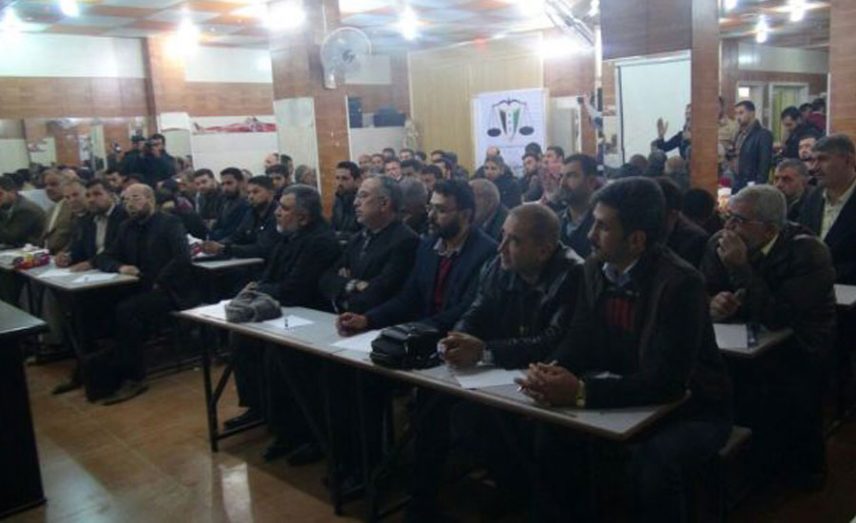Residents of Idleb province announced the formation of a “political council” last Sunday, December 4, as a response to the shortcomings of the Syrian National Coalition in light of the recent mass displacement of people and militants from most areas of the Damascus countryside.
The political council issued its first statement in which it said: “As a result of the circumstances which the Syrian revolution is going through, and the weakness of the international community in carrying out its duties and commitments, and the weak political performance and the lack of real domestic representation, we announce the formation of a political council in Idleb, and we appoint Radwan al-Atrash as head in his first term.”
The statement pointed to the discontent and anger of Idleb’s residents toward the Coalition’s performance in their province.
As head of the political council, Atrash, said: “This council will bring together revolutionary and civilian actors in Idleb, and the domestic voice expressing the aspirations and hopes of the people to build a state of justice, freedom and dignity.”
He added: “The council will be a political representative for the area and its voice to the outside. It will communicate with the factions to encourage them to unite or at least to make a military council to coordinate among themselves. We have seen positive indicators in this direction from leaders in Idleb.”
Atrash continued: “We will carry out efforts to improve Idleb and spare it the expected battle through stopping the bombardment and returning normal life to it, and keep away the terrorist coloring which the regime and its allies are trying to pin on it on the pretext of the presence of Jabhat Fatah al-Sham (formerly Nusra Front). The military presence is not limited to the Jabhat, but there are seven factors here, and we confirm that the group members are from the region and are not carrying arms except as a result of the situation we have reached.
He explained that the political council in Idleb was not against the Coalition, and that it was in touch with them. However it was not satisfied with their work in the region and that there was popular anger about their shortcomings and weak performance.
Atrash said, “The first word will be for policy, and our plan will be on three tracks: political, military and administrative, in which there are the social and economic aspects which will be coordinated with the local councils and work done to strengthen them.”
The head of the Idleb province council, Ghassan Hamou, ruled out that there was a contradiction in the tasks of the council and the actors of the Coalition, saying: “The new formation will not conflict with the work of the Coalition’s council and the temporary government, but on the contrary it is possible they will work together for Idleb’s benefit, with the council from a political angle and us from the angle of services,” according to Al-Sharq Al-Awsat.
Atrash for his part rejected the idea that the council was a step toward federalism, saying: “On the contrary, it is a step toward a transitional governing entity in Syria which should be worked toward in any political solution. We will work on circulating the experiment in the areas under opposition control. We have communicated with activists in Hama and the Aleppo countryside, and have received a response from them. This is to gather together at a later time within a united group.”
This article was translated and edited by The Syrian Observer. Responsibility for the information and views set out in this article lies entirely with the author.


